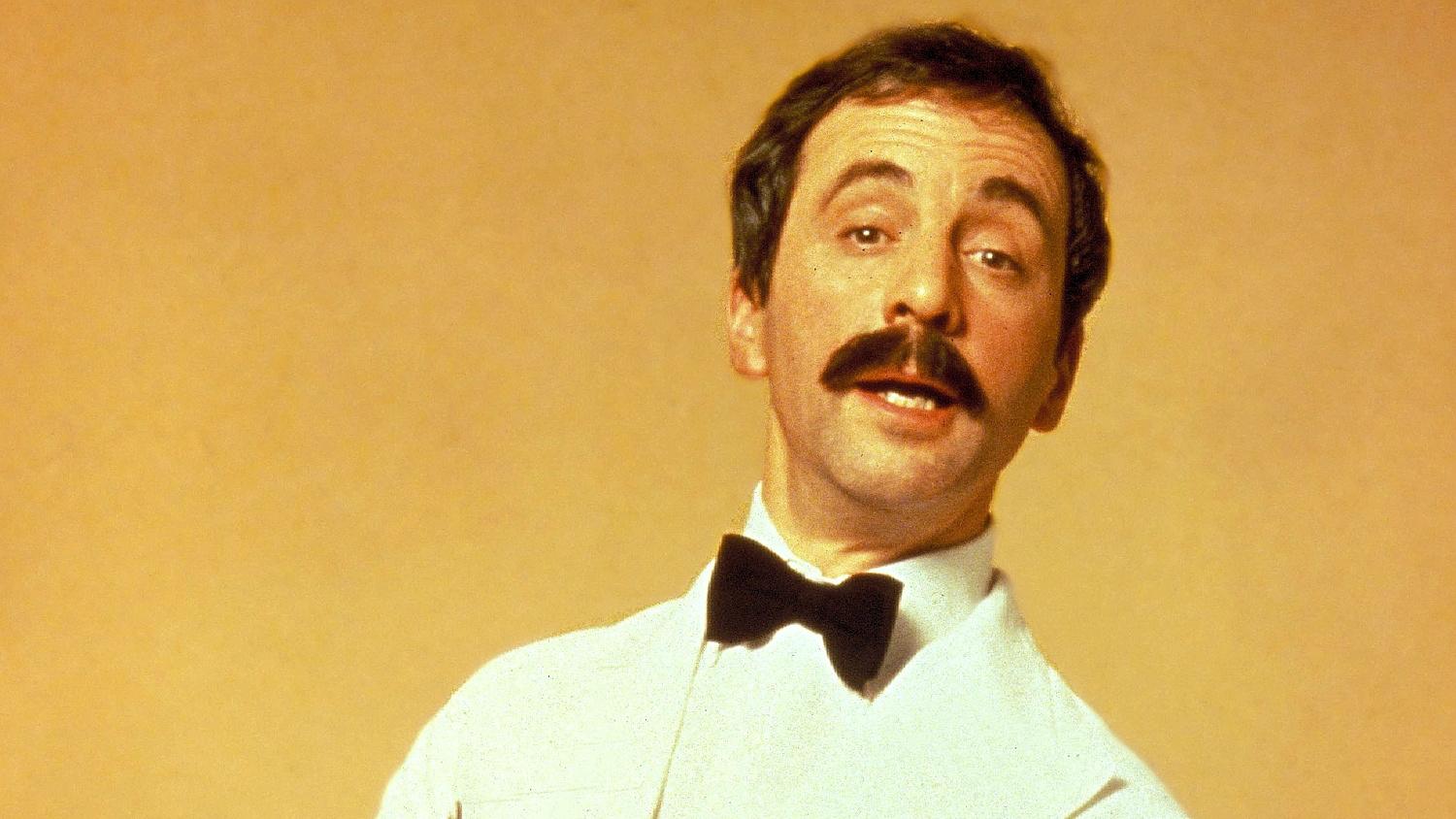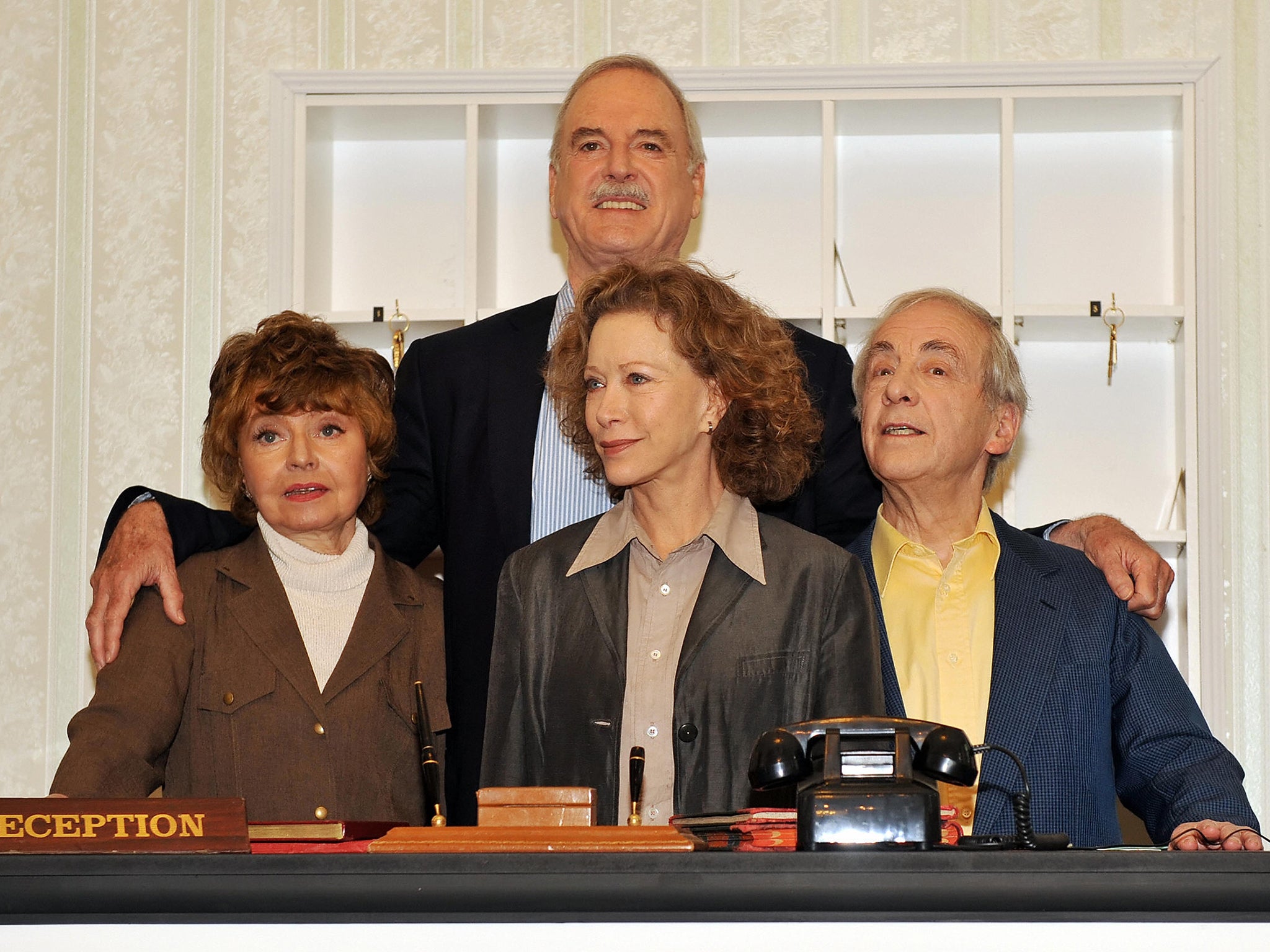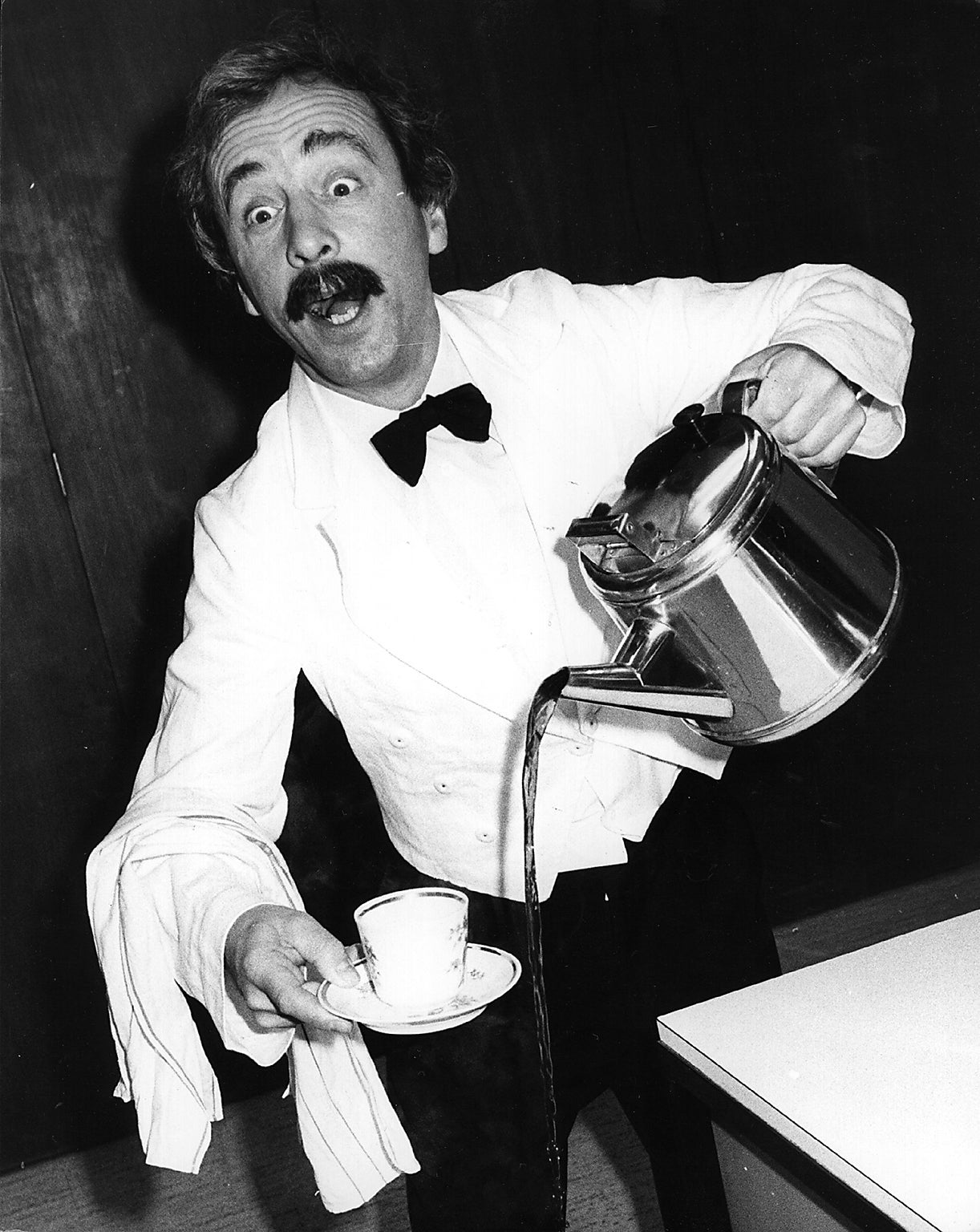Andrew Sachs: Fawlty Towers’ beloved Manuel dies at age 86
Andrew Sachs was a skilful stage and television actor beloved in Britain and abroad for his role as the celebrated Manuel in Fawlty Towers. Bernard Adams traces back to the roots of the actor’s rise to fame

Andrew Sachs was a skilful stage, television and film actor whose profile rose to almost stratospheric heights twice in his life. The first time this happened it was deserved: he “became” the celebrated and loveable Manuel, the maladroit but very funny victim of John Cleese’s volcanic rages in Fawlty Towers. He was an unforgettable cog in the precise comic mechanisms of the twelve-part television classic.
His second moment of headline fame was unwanted and undeserved. In his autobiography, I Know Nothing (2014), there is a chapter titled “A Distressing Time”. The 2008 incident when Jonathan Ross and Russell Brand left messages, ranging from the facetious to the downright nasty, on the Sachs answer-phone and later broadcast them, was indeed “hugely distressing”. It happened because Andrew politely refused to appear on Brand’s Radio 2 show.
Writing years later, there was real anger in Andrew’s description of the messages he heard on his phone: “What mattered so much was that they dragged in my granddaughter for no sane reason – except to have some fun at our expense.” At the time, Andrew handled “Sachsgate” with dignity and restraint.
The outrage felt by the British public at this bullying indicated what a much-loved part of British culture Andrew had become. This was something of an achievement for a boy born in Berlin, whose family had fled Germany and arrived almost destitute in Britain in 1938. His father, Hans, was a Jew; his mother, Katrina, a Catholic. She was the cultured daughter of a novelist; he was fluent in French, a fan of Rudyard Kipling and very charming. The family had theatrical connections – close enough for little Andrew to be chucked under the chin by Marlene Dietrich.

As a child Andrew was instinctively pro-Communist and anti-Fascist: as a strutting Hitler-Youth parade passed the window, he had the temerity to shout out “Hitler isn’t funny”. His scope for rebelliousness was limited, however. He had to do house-to-house metal scrap collections; then he lost a friend at school who wouldn’t play with Andrew any more because his father was Jewish. The writing was on the wall.
Emigration was already being discussed in the family when disaster struck. Eight-year old Andrew was eating in a restaurant with his family when the police came in and checked his father’s papers. Hans had a mild but, in the Nazi context, inflammatory cartoon in his wallet. It showed Little Red Riding Hood (the German People) being menaced by the Big Bad Wolf (the Nazi Party). Hans was quickly taken away – with one of the officers telling Katrina: “You will never see your husband again.” That might have been the case ,but Katrina was resourceful and, with the help of her family, managed to pull some strings so that her husband was released a few days later.
Hans was already in London when Kristallnacht happened. Katrina and the children followed him as quickly as possible. By the end of 1938 they were in rented rooms at Hatch End. After two terms at school in London Andrew was fluent in English but the family was now crammed into a small flat in Kilburn. More house moves followed – during which Andrew’s relationship with the animal kingdom – from pet mice to stray, damaged birds – became closer. He was an animal-lover all his life.

More pain was in store. Hans died of cancer in 1944, aged 59, and the family was in acute financial difficulty. Andrew failed his School Certificate examination, but his impassioned speeches convinced his mother that this failure didn’t matter because his only possible future lay in acting. By the time he had left school he had already appeared in the Ealing Comedy Hue and Cry. But National Service in a tank regiment and shilly-shallying by RADA meant that his formal training was limited. So he plunged into rep – first as an Assistant Stage Manager, then in small parts – first at Bexhill then at Worthing where he achieved his best salary so far – £8 per week. He was still only 22 when the daunting Noel Coward directed him in one of his less successful musicals, After the Ball, in the West End. From that moment on a varied career rolled out in front of him.
The next step was into the BBC Radio Repertory company. He was busy: in one month he acted in seventeen different radio productions. For a time he directed Mrs Dale’s Diary – coping with the formidable diva Jessie Matthews. Then he began to write radio scripts – starting with a soap, Dear Girls.
His life changed again when he met Melody Lang, an actress and dance teacher. He was trying to learn the skills of ballroom and she gave him low marks for his steps but high for everything else. They were soon together; their daughter Kate was born in 1961 and they married in 1962. They were happy but fate dealt Andrew another blow when his indomitable mother, Katrina, who had been battling Parkinson’s died in 1967. As Andrew puts it: “She had looked after me with such love all her life.”
Andrew took to farce next – appearing in numerous productions at Brian Rix’s Whitehall Theatre. The skills he acquired there were to be more than useful when he “became” Manuel. When he was appearing in No Sex Please, We’re British, John Cleese was casting Fawlty Towers, and came to see him in the play. Andrew was offered Manuel but went through agonies of uncertainty and manic preparation before he felt convinced that he could do a proper Spanish accent. What happened after that is television history, an integral part of which is the performance of someone who John Cleese described as ‘a wonderfully inventive comic actor’.

Fawlty Towers opened all sorts of stage doors: Andrew appeared in Kafka’s Dick at the Royal Court and Wild Oats at the National – just two of a string of mostly comic roles which flowed through the Seventies, Eighties and Nineties. He also did a huge amount of what he called “sitting-down acting” – commentaries for television documentaries,done with the calm, measured, reasonable, easy-on-the-ear voice which often added so much to the pictures.
I have two personal memories of him. I directed him in a little educational language series called When in Spain. The conceit was that, as Andrew, he was being taught Spanish by Manuel, who prompted him invisibly with the right Spanish words when he needed them. Andrew was at the peak of his fame when we made the programmes but his modesty, his enthusiasm and his flexibility were delightful. He was even game enough to snorkel an effective underwater sequence for us. Later we returned to his Berlin to re-trace his childhood in a documentary called Berliners. We found that his friend Frau Fellenberg, who had given him spoonfuls of cocoa as a little boy fifty years before, was – astonishingly – still living in the same flat in Zehlendorf. We filmed a re-creation of the scene where the famous actor meets the elderly Berliner for the first time in half a century. Needless to say, both performers excelled themselves.
Andreas Siegfried Sachs, actor and writer, born Berlin 7 April 1930; married 1962 Melody Lang; one daughter Kate, also adopted Melody’s two sons, John and William, by a previous marriage; died 23 November, 2016 at 86
Join our commenting forum
Join thought-provoking conversations, follow other Independent readers and see their replies
Comments
Bookmark popover
Removed from bookmarks